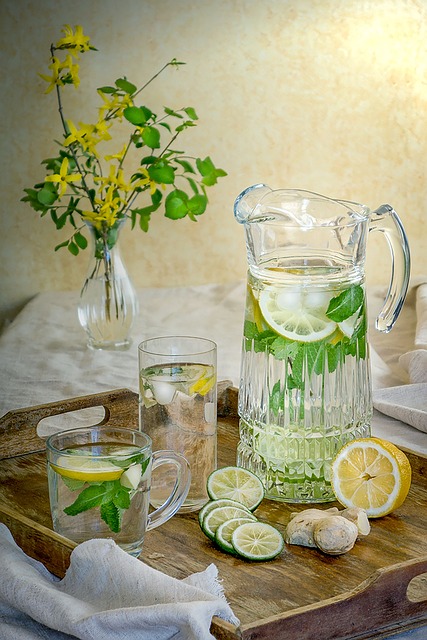Cold water immersion, or cold plunging, is a natural remedy gaining popularity for improving mental well-being. Submerging in cold water below 59°F (15°C) for short periods stimulates endorphin release, reducing stress and anxiety by lowering cortisol levels. This ancient practice offers significant mental health benefits, including managing depression symptoms, and provides a relaxing experience that promotes tranquility and calmness. Incorporating cold water therapy can be an effective way to relieve stress and anxiety, offering daily or weekly 10-15 minute exposures for improved mood and relaxation.
Unleash your body’s natural mood booster with the power of cold water immersion. This ancient practice is making waves in modern wellness as a game-changer for mental health. Discover how submerging yourself in cold water can trigger a surge of endorphins, nature’s very own feel-good chemicals, effectively reducing stress and anxiety. From scientific studies to real-life testimonials, explore the calming effects of cold plunges and learn how this simple yet potent technique can be incorporated into your routine for optimal relaxation and enhanced well-being.
Understanding Endorphins and Their Role in Mental Health
Endorphins are neurotransmitters naturally produced by our bodies, often referred to as ‘feel-good’ chemicals due to their role in regulating mood and promoting a sense of well-being. These powerful compounds play a significant part in our mental health, acting as natural painkillers and triggering feelings of euphoria and relaxation. In the context of stress and anxiety, understanding endorphins is crucial. Cold water immersion, or cold plunging, has emerged as an effective method to stimulate the release of these beneficial hormones.
When you subject your body to a cold water therapy session, such as a cold plunge, it triggers a physiological response that increases endorphin levels. The sudden exposure to cold water causes a stress reaction, prompting the body to release endorphins to counteract the perceived threat. This process not only leads to an immediate sense of calm but also offers long-term benefits for mental health. The calming effects of cold plunges have been linked to reduced stress and anxiety levels, making it a popular game-changer in managing modern-day pressures.
Cold Water Immersion: A Natural Way to Boost Endorphin Levels
Cold water immersion, often in the form of a cold plunge, has emerged as a natural and powerful way to boost endorphin levels and promote overall mental well-being. This ancient practice involves submerging oneself in cold water, typically below 59°F (15°C), for a short period. The sudden exposure to cold triggers a series of physiological responses in the body, leading to the release of endorphins, often referred to as the ‘feel-good’ hormones.
The benefits of cold plunges for stress relief and anxiety reduction are well documented. The calming effects of cold water therapy can help lower cortisol levels, often associated with stress, and promote a sense of tranquility. Many individuals find that regular cold water immersion helps them manage symptoms of depression and enhances their overall mental health. By embracing this natural remedy, folks can experience a refreshing and rejuvenating sensation while reaping the rewards of boosted endorphins and reduced anxiety.
Scientific Evidence of Cold Plunges for Stress and Anxiety Reduction
Cold plunging has gained significant attention from researchers and mental health professionals due to its promising results in stress and anxiety reduction. Numerous studies have explored the physiological responses to cold exposure, revealing that immersing oneself in cold water can trigger a cascade of beneficial effects in the body. One key mechanism is the release of endorphins, often referred to as nature’s antidepressants, which are natural chemicals produced by the brain to reduce pain and induce feelings of pleasure and relaxation.
Research suggests that cold water therapy can effectively lower cortisol levels, commonly known as the stress hormone, and stimulate the vagus nerve, contributing to a calmer and more relaxed state. The calming effects of cold plunges have been attributed to their ability to disrupt the body’s stress response, promoting a sense of tranquility and mental clarity. This ancient practice is now backed by modern science, solidifying its role as a promising complementary approach for managing stress and anxiety in today’s fast-paced world.
Incorporating Cold Water Therapy into Your Routine for Optimal Relaxation
Incorporating cold water therapy into your routine can be a game-changer for stress and anxiety relief, offering a natural and powerful way to enhance your mental health. A cold plunge or immersion in icy water triggers a physiological response that goes beyond physical discomfort. The cold exposure stimulates your body’s release of endorphins, often referred to as ‘feel-good’ hormones, which can significantly reduce symptoms of stress and anxiety. This simple yet effective practice has gained popularity for its calming effects, providing an accessible way to achieve mental clarity and relaxation.
For optimal relaxation, consider incorporating brief cold water immersions into your daily or weekly schedule. Whether it’s a quick dip in an ice-cold pool, a refreshing shower, or even a cold compress on your skin, these practices can promote a sense of tranquility. The key is to expose yourself to the cold for a short duration, typically 10–15 minutes, and focus on breathing deeply during the experience. Over time, you may find that regular cold water therapy becomes a valuable tool in managing stress, improving mood, and achieving a deeper state of calm.
Cold water immersion offers a natural and powerful way to enhance endorphin levels, providing significant benefits for mental health. By incorporating this simple yet effective practice into your routine, you can experience the calming effects of cold plunges for stress relief and anxiety reduction. Scientific evidence highlights the positive impact of cold exposure on overall well-being, making it a game-changer in managing daily stressors. Embrace the tranquility that cold water therapy brings and unlock the potential for optimal relaxation and improved mental resilience.
